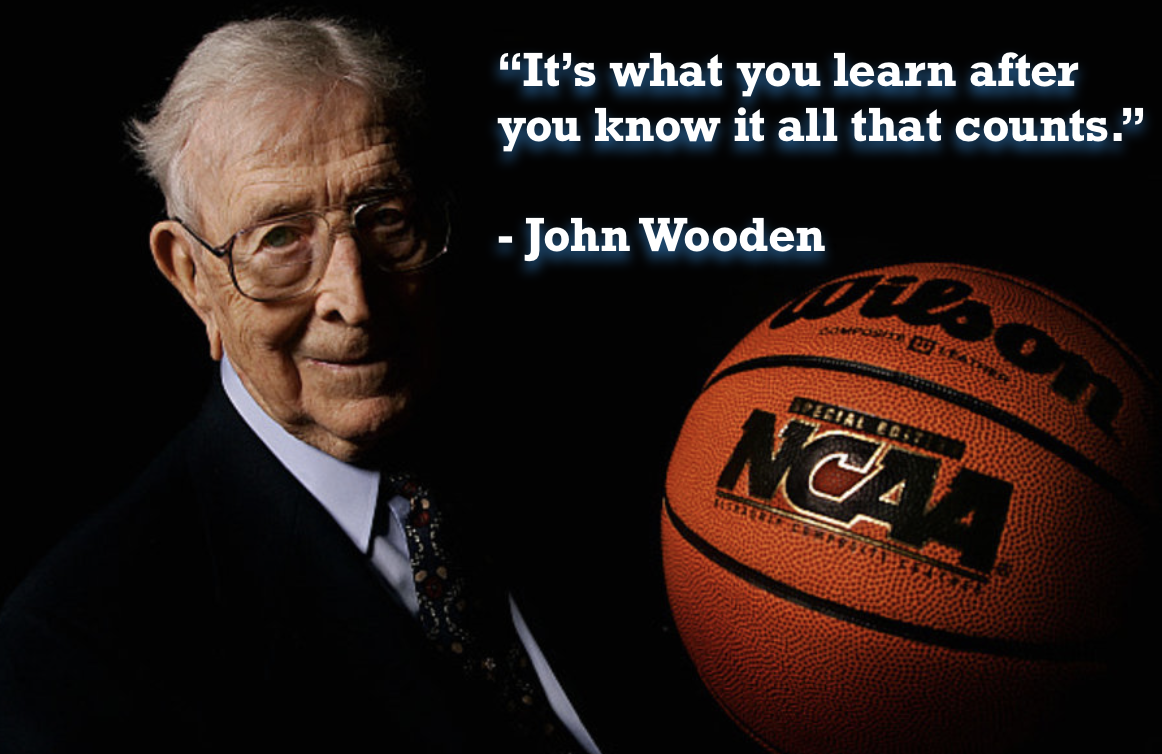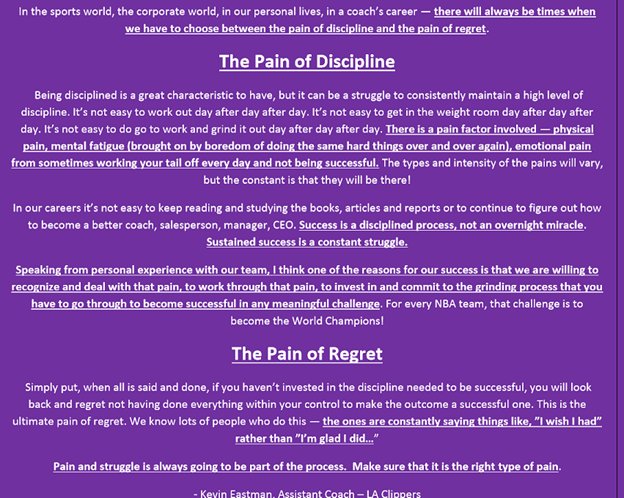Playing and coaching baseball are two different things. There is overlap in how the game is learned and processed, but being a good coach is totally different than being a good player. As a player, you only have to understand one language and style – your own. As a coach, you can’t just rely on what helped you as a player. You need to understand the language and style of each and every single kid on your team. Your experiences as a player can help you get a head start on this, but there is much more work to be done if you want to help as many kids as you can.
While the style I learned as a player will not help all the kids I coach, I’ve learned that my experiences as a player have built the foundation for who I am as a coach today. They gave me different perspectives and taught me how to see things through a different lense. It gave me the ability to spend time and learn from men with wisdom from years of skin in the game. I started to figure out what I liked, what I didn’t like, and what I needed to learn more about. While I was only getting started, my journey as a player fueled my love for coaching and helping other people. My playing career won’t determine whether I have success or not as a coach, but it was a crucial starting point in my career as a teacher.
Below are some of the most important things I’ve learned as a player that will help me as a coach.
- Never stop learning
I was very fortunate to grow up with family members, people, and coaches who were obsessed with learning. As a result, their passion for growth ended up rubbing off on me. Since baseball was something I loved and wanted to get better at, it became the motivation for my learning early on. I picked up books, read articles, watched videos, and asked questions when I couldn’t figure something out. It wasn’t perfect early on, but it didn’t need to be because you can’t figure out what you like until you find something you don’t like. This early obsession helped build the foundation for my coaching philosophy today, but more importantly it taught me how my teaching will always change and evolve. New information is going to come out and is going to change the way we think and train our athletes. There’s no shame in looking back five years ago and seeing how differently you would do things today. If anything it shows a tremendous amount of growth. You can’t have these kinds of realizations if you don’t have a mindset of a life-long learner. If you don’t make a commitment to learning and challenging what you know on a daily basis, this game will pass you by. Hall of Fame basketball coach John Wooden said it best: “It’s what you learn after you know it all that counts.”

- There is no one way to do it
Snowflakes and fingerprints are akin to ball players: Not a single one is the same. Every player is going to develop their unique style through years of experimentation and practice. If you want to get the most out of your playing career, you need to understand what works best for you. Some things may work better earlier in your career and may not work as well later on. Other things may not work out initially but may turn out to be beneficial down the road. You may need to think about swinging down on the ball to hit line drives. Your teammate might need to think the opposite to get the same result. You may need to think about side arming the ball to sync your arm into the plane of rotation. Your teammate may need to think about getting on top of the ball and pulling it through. The more guys you’re around, the more you realize that there are a multitude of ways to do this thing. If you can carry this approach into your coaching career, you will find it’s much easier to maximize your influence over the ones who can’t.
- Daily discipline
One of the most important questions you can ask yourself on a daily basis is, “What is my plan to get better today?” From the time you wake up until the time you go to bed, you need to have a plan as a player for how you’re going to get one percent better every single day. This involves how you study, prepare, eat, sleep, train, and work to perfect your craft. The catch is everyone knows these things are important. I don’t think anyone will argue that sleeping eight hours a night, doing your homework, lifting weights, eating a balanced diet, or getting swings in the cage are bad things. In fact, many players know exactly what they should be doing to be successful. The problem is very few actually have the discipline to do them. The discipline to do what is necessary every single day has been one of the most important things I’ve learned as a player. Every single day you need to show up, punch the card, and put in work. If you don’t wake up with a plan to attack the day and crush your goals, you will be eliminated. This process doesn’t get any easier as a coach. Instead of just being responsible for yourself, you are now accountable for a group of young men that all look up to you. If you don’t have the discipline to show up and put your best foot forward on a daily basis, your team will suffer the consequences. You can either suffer the pain of discipline or the pain of regret. Choose wisely.

- Don’t be afraid to go against the grain
“It is impossible for a pitcher to be confident in competition if he is concerned with others’ evaluation of him.” – Harvey Dorfman, from The Mental ABC’s of Pitching
One of the worst things you can do as a player is just try to “fit in.” Having the courage to stand up for what you believe in and take the road less traveled is a requirement if you want to separate yourself from the pack. Not everyone is going to have the same goals and ambitions as you. Some guys are going to be more prone to trying new things and others are going to be rigid in their ways. You may like to use weighted baseballs but the rest of your teammates may think they’re a waste of time. It’s totally okay if you do things that everyone doesn’t agree with – the only opinion that should matter is yours. The most successful people don’t look for what everyone else is doing – they look for what they’re not doing. Jerry Seinfield illustrated this best when he said, “Sometimes the road less traveled is less traveled for a reason.” If you want to differentiate yourself from the crowd, you need to have the courage to act on your own ideas and make your own path. Your career is too short to care about what other people think.
- The game doesn’t owe you a thing
For everything you put into this game, you are not guaranteed anything in return. Players and coaches are constantly being influenced by things that are out of our control. Even though we don’t like to admit it, this game is largely dictated by luck and chance. Sometimes we hit the jackpot and find the right place at the right time with the right people. Other times we hit the three balls right on the screws and all we have to show for it is an 0-3 day. The sooner we get to grips with this the better. If you think your hard work entitles you to success, you’re going to have a miserable career. You’ve got to be willing to put skin in the game and accept that you have very little control of the outcomes if you want to last. The game will reward those who put in time and persist, but it will not reward you on your watch. Baseball has gone on long before you and it will go on without you – it does not owe you a thing. If anything, you owe the game everything. Never forget where you stand.
The game will reward those who put in time and persist, but it will not reward you on your watch.
- Believe in yourself
At some point in your playing career, you are going to get to a level where you absolutely get your ass kicked. The obstacles you face will be greater than you’ve ever seen before. People who you counted on will let you down and your heart will be broken. Things that you cannot control will negatively impact you. It is during these moments when your confidence and belief in your abilities will fluctuate more than ever. When your back is against the wall, the one person that is always going to have your back is yourself. Before anyone else believes in you, you need to have the courage to believe in yourself. Coaching is no different. If you don’t believe in your ability to teach and lead, you’ll never get the young men in your program aligned and on board with your vision. It’s no coincidence that the best athletes and the best programs have a great sense of belief. You’ll always be at the constraint of the confidence you have in yourself. Don’t sell yourself short.
- Humility
There are two types of people in this world: Those who are humble and those who are about to be. If you’ve ever played baseball before, you should understand this better than anyone. One day you’re 4-4 and feeling great and just 24 hours later you could be 0-4 with three punch outs. One outing you throw seven shutout innings and feel invincible and then the next outing you can’t even make it out of the first. The second you think you have this thing figured out is the second you don’t. Learning how to handle failure is important, but handling success requires you to check your ego at the door. The best have the humility to remember the tough times and understand their work is not finished. If you are not humble about what you do, this game will humble you quickly. The season is going to be filled with peaks and valleys that take you to the most extreme emotions. The best way to handle these moments is to center yourself through humility. Never get too high and never get too low.
- It’s just a game

At the end of the day, baseball is nothing more than a kid’s game. Your success as a player or as a coach does not make you a better human being. Your batting average or win loss record does not entitle you to anything. If our ego and self worth is wrapped up in the stat sheet, we won’t be able to see the beauty of this game, the experiences it gives us, and the people we meet along our journey. The game is so much bigger than us and it always will be. The odds of you winning the final game of your season is miniscule. As Tim Corbin says, we need to be playing the infinite game and that is the game of life. Baseball gives us a unique platform to teach this.
Legendary baseball coach Augie Garrido spoke about this in his 2008 documentary Inning by Inning: A Portrait of a Coach. After a game at Kansas State, Garrido said:
“This is important… not for the game… not for the fans… But because what it does for you as you mature and grow, you start to get mentally tougher so that anything you do in your entire life – you will be able to out-compete anyone around you. Ultimately, it comes down to what LIFE is really all about… Having the courage to make the decisions to act on your own thoughts and ideas and become who you want to become.”
Baseball is a beautiful vessel that helps us teach kids lessons that will last beyond their playing days. As a player, you learn how to grapple with adversity, face your fears with courage, become a part of something greater than yourself, sacrifice for the common good of the group, take ownership and responsibility for your actions, and learn from those who have paved the way for you. It is through this process, just like Garrido said, that we start to become who we are meant to be. If you fail to recognize that baseball is just a game that allows you to do this, you’ll miss out on the most important part.
Don’t let your ego get attached to the wins and losses. Baseball isn’t who you are – it’s just what you do.

